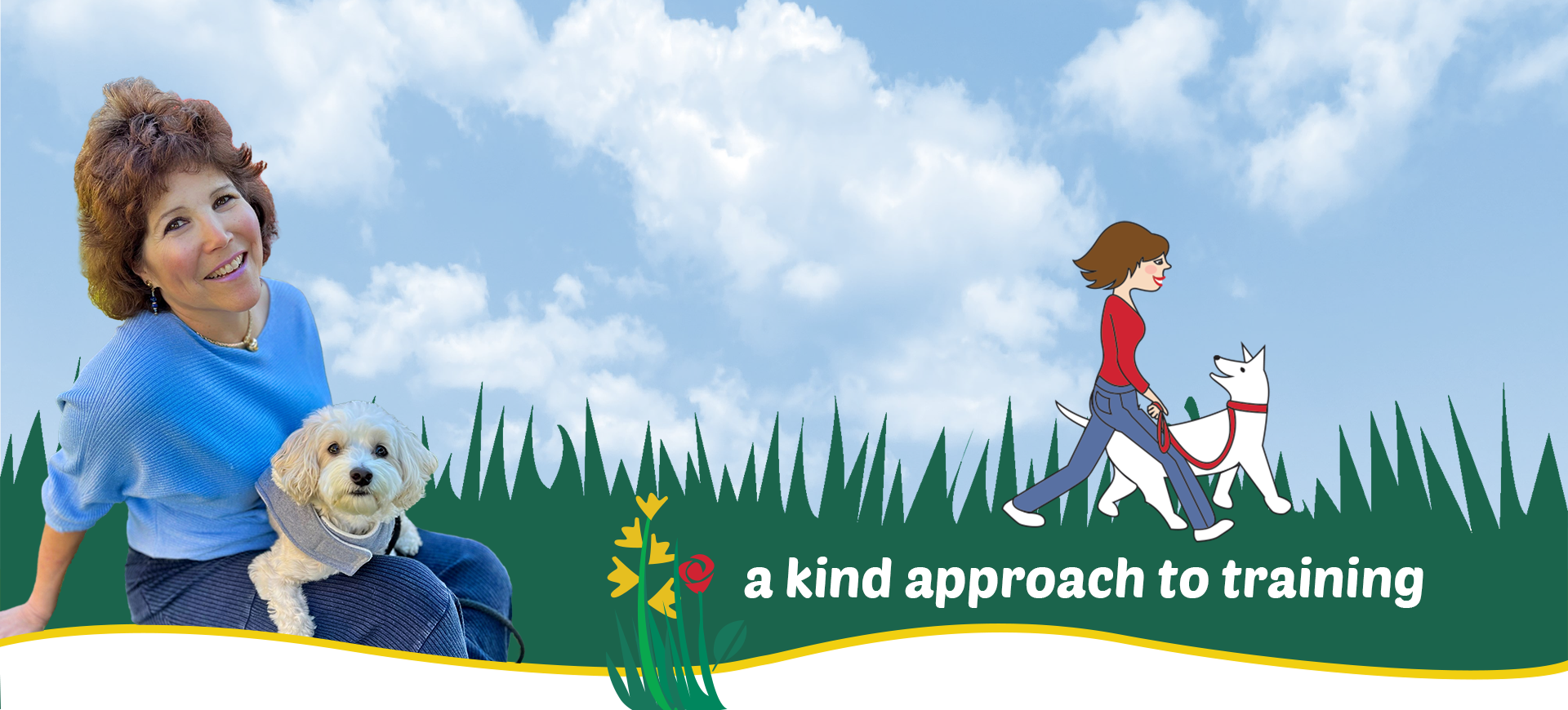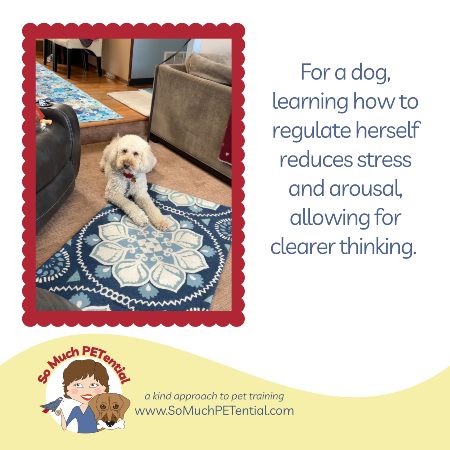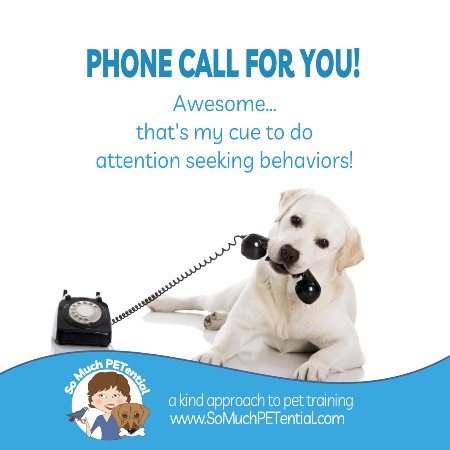When I attended the Association of Pet Dog Trainers conference, I had an opportunity to meet Victoria Stilwell, best known for her role as the star of Animal Planet’s hit TV series It’s Me or the Dog. What I share with her is our passion for positive reinforcement  training methods that enhance a dog’s ability to learn while increasing confidence, resulting in a healthy, well-adjusted pet. I spoke with her afterward about her training philosophy. Below is an excerpt.
training methods that enhance a dog’s ability to learn while increasing confidence, resulting in a healthy, well-adjusted pet. I spoke with her afterward about her training philosophy. Below is an excerpt.
Do you think of yourself as a trainer or a teacher?
I actually just wrote my third book and a lot of it is teaching. For so long the emphasis in our industry has been on training your dog but I see it more as teaching your dog. To make that transition, I still have to make that connection with people by using the word ‘training’. Inside my new book, however, I talk more about teaching. The word ‘teaching’ puts more emphasis on not putting your will upon your dog. Instead, you’re teaching it how to live successfully in your world. Teaching gives a better understanding that it isn’t any different than teaching a child.
What do you want people to know about the difference between dominance based training and reward-based training?
Training with force can really damage the relationship and trust between you and your dog. If you reward your dog and teach him, then your dog will do behaviors because he wants to and not because he is frightened.
When people try dominance-based training that they’ve seen on tv, they are getting bitten and their dogs are becoming more aggressive. And children who copy what their parents do are getting bitten.
What are some of the most important skills pet owners can learn that will make the greatest impact on their relationship with their pet?
I definitely want them to understand that they do not need dominance based skills. It is a constant battle to undo the popularity of dominance training. It is perfectly acceptable for any level of person to use punitive techniques to train their dog. However, when you ask that person, ‘Would you use those same techniques on your child?,’ they say, ‘of course not.’ They say, ‘well, the dog is different.’
Well, NO, it isn’t. Regardless of breed, drive or problem behavior, you can teach your dog to be successful without punitive techniques.
Consistency is also important, and having the whole family on the same page. Owners need to understand how to be clear in their communication with their dog – is it allowed on the sofa or not allowed? Pet owners should make learning as easy as possible for their dog.
What are some of the most important skills a pet owner can teach his/her dog to make the greatest impact on its success in the home?
Teaching the dog various cues helps it to understand what it is trying to get it to do. Consistency and impulse control are very important. Humans are taught impulse control as grow up, and we need to teach pups these skills too. One of the many reasons why is so that won’t just dash out of the door. So many classes center on teaching dog to sit, stay, etc but don’t put those skills into real life context. There is a reason why we teach sitting and staying – it is for impulse control. That is how I teaches them – it is an action that benefits them day to day.
Also teaching your dog to target or touch its nose to your hand are also good as you can use those skills to teach a number of behaviors.
What is your advice to a family before they get a dog?
Do your research. I ask people, ‘If a dog could sit down and interview you, what could you offer it? Why would it choose you?’
For parents, if you are thinking about getting a dog, children 6 years and older need to understand how to be kind and humane. Ask yourself if you have the time to look after a dog and children too? People have to understand that this is a big and important commitment.
I always recommend that people take their child to a humane education class or safety around dogs class. If you have babies and toddlers, never leave them alone with your dog because accidents happen in a quick amount of time.






